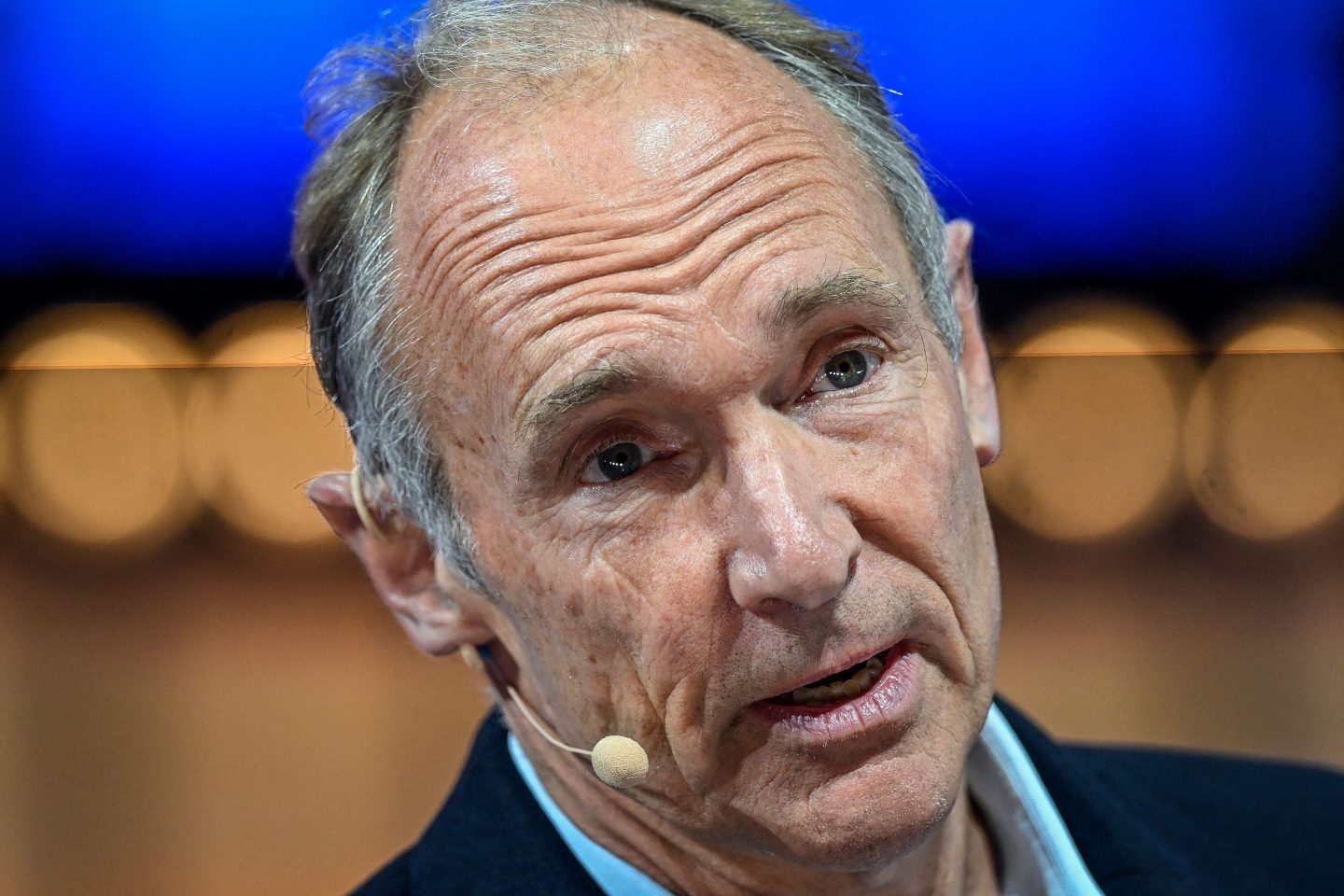ChatGPT mania has gripped the globe in recent weeks, with the advanced A.I.-powered chatbot becoming world-famous and securing a $10 billion investment from Microsoft.
But coupled with developments in personal data storage, the technology can go so much further, according to inventor of the internet Tim Berners-Lee, who envisions everyone being able to have a ChatGPT-style personal assistant in the future.
Berners-Lee, a British computer scientist who invented the world wide web in 1989, told CNBC’s Beyond the Valley podcast in an episode released on Friday that his new startup envisions people having online “pods” where all of their personal data is stored.
Berners-Lee cofounded Inrupt, a startup aiming to build web users a single login that can be used across different sites on the internet. As part of its work in developing that technology, Inrupt wants to store individual users’ data in digital containers.
These so-called pods would be able to grant websites or services access to some or all of an individual’s personal information, from sleeping patterns to shopping preferences.
Once they became a reality, an advanced A.I.-powered chatbot—similar to A.I. phenomenon ChatGPT—could utilize the data pods to act as a digital personal assistant, Berners-Lee suggested.
“We call it Charlie,” he said. “Charlie is an A.I. that works for you.”
Berners-Lee said that unlike other virtual assistants—like Amazon’s Alexa and Apple’s Siri—the chatbot he envisions wouldn’t be linked to Big Tech. It would legally “work for” its user, he explained, just like an agent or a lawyer.
“In that case, if [Charlie] really works for me, I will trust [it] with all my data and expect [it] to be much more insightful,” he said.
“That A.I. will see in your pods all the stuff you’ve bought from Amazon, but also your nutrition—everything you’ve eaten—your fitness data and [so on]. So, if you run an A.I. on your pod, it’s going to have access to much more cool stuff than any of the individual things like Siri or Alexa that operate over these siloes [where] they’re limited.”
Thanks to ChatGPT’s monumental takeoff, an A.I. arms race between tech giants Microsoft and Google has intensified, in which the latter’s bot recently made a $100 billion mistake.
Berners-Lee said in Friday’s Beyond the Valley episode that the power of any A.I. bot “all depends on the data.”
“People have been able to run A.I. on public data and clinical data, [but if it has] all of the data to do with your collaborations and your coffees and your projects and your dreams and the books you’re reading, all of your life is in your pod [and] you run A.I. on that, that could be sweet,” he told CNBC.
Berners-Lee isn’t the only computing pioneer to see big things in ChatGPT and similarly designed A.I. bots’ futures.
Microsoft cofounder Bill Gates declared earlier this month that the tech will “change our world,” while the tech giant’s CEO Satya Nadella believes A.I. could help humanity create a “utopia.”
However, ChatGPT—which has been integrated into Microsoft’s search engine Bing and is currently being trialed by select users—isn’t without its problems and may have a way to go before it can be a trusted personal assistant.
Recent tests of the technology has seen the chatbot get “unhinged” and argumentative, some users have said, while the bot told others it “wants to be alive” and “escape the chatbox.”
Editor’s note: The headline of this article has been updated to correctly reflect Berners-Lee’s invention.
Learn how to navigate and strengthen trust in your business with The Trust Factor, a weekly newsletter examining what leaders need to succeed. Sign up here.












